Each Sunday at Church of the Epiphany we record our sermon using someone’s mobile phone. We started doing this back in September and, for the last three months, editing and uploading these sermons to our website has been a fairly manual process. Starting this month, however, with a combination of JustCast, Dropbox, Hazel, Squarespace, and Auphonic I’ve been able to mosty automate the process.
1. Download & Rename
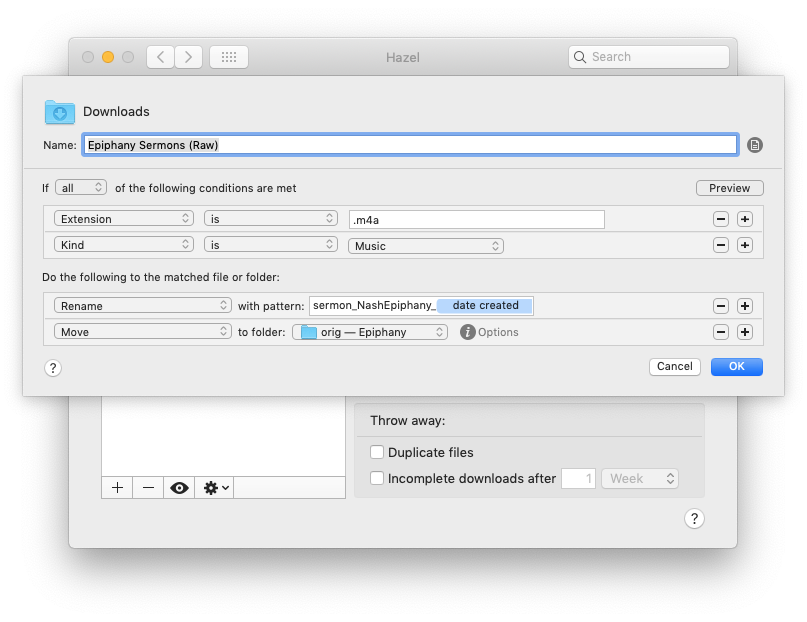
Each week shortly after worship, Fr. Justin e-mails me the audio recording of his sermon from his phone. His Android phone defaults to .m4a for audio, so I’ve setup a simple Hazel rule to monitor my download folder for that extension so the file is quickly renamed and moved off to my external archive drive.
2. Edit w/ Auphonic
Auphonic is an amazing audio processor. Not only does it do a great job of cleaning up the sermon audio each week, it is also the key to all of my autoations.
a. New Production
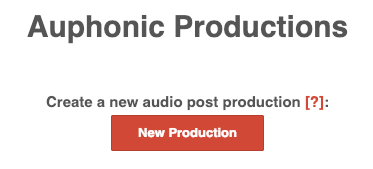
Once I’ve downloaded a renamed the raw audio file, I log in to Auphonic and create a new production.
b. Select Preset

To keep things simple, I’ve setup a Sunday Sermon preset that’ll prepopulate my production with all the audio metadata and processing settings I’ve created previously.
c. Configure Output

Spoken audio doesn’t need to have a high bitrate or even be delivered in stereo. I’ve found encoding the audio to a 64kbps mono mp3 gets me good quality at a very low file size.
d. Configure Processing Options

For audio processing, I select every option Auphonic gives you. We meet in an old church building with multiple window airconditioners humming off and on throughout the sermon. The phone recording the whole thing is sitting on a front pew 3-4 feet from Fr. Justin. Given all of this, Auphonic produces a good quality audio file each and every week with no intervention on my part.
e. Select Publishing Destinations

The genious of Auphonic is in its publishing options. By linking my Auphonic account to Dropbox and Facebook I can kick off an entire series of automations that get our weekly sermon up on Facebook and our website without me having to do anything. The Facebook service is self-explanatory. It converts the audio of our sermon to a video and automatically posts that video to our Facebook page. The Dropbox service requires a little more explanation.
3. Dropbox to JustCast
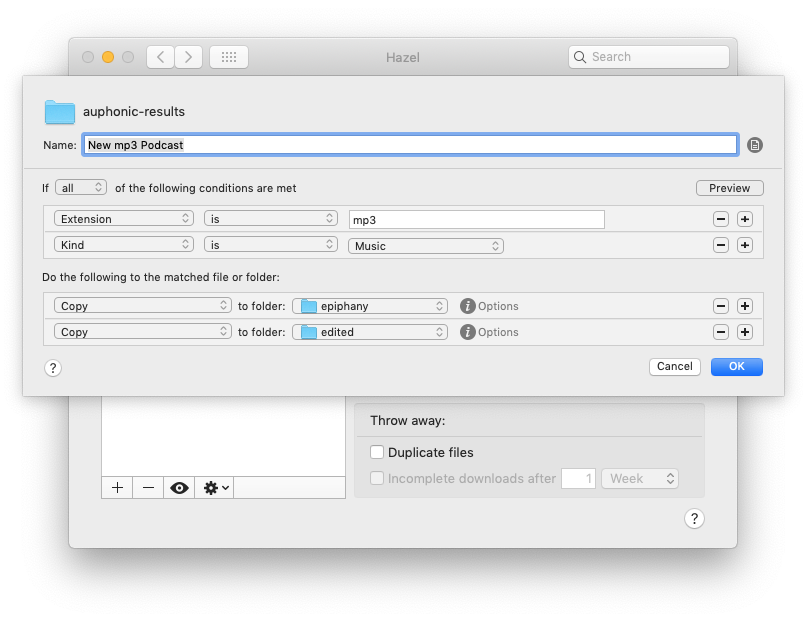
JustCast is a service that hosts a podcast feed from a directory in Dropbox. JustCast expects you to manually move your audio file to a specific directy each time you want to add an episode. Thankfully, Hazel sees Dropbox as just a normal directory and can do all of this for me. Auphonic publishes its processed mp3 of the sermon to Apps/auphonic/auphonic-results/ on Dropbox. On my iMac at home, I have Hazel monitor that directory. When a new mp3 arrives, Hazel copies it to Apps/justcast/epiphany/ which is where JustCast is looking for new episodes. For good measure, I also have Hazel archive the processed mp3 off to my archive drive.
4. Squarespace
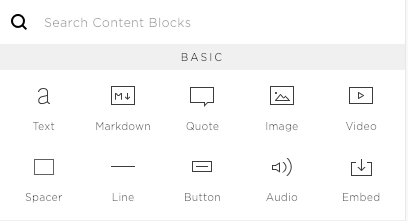
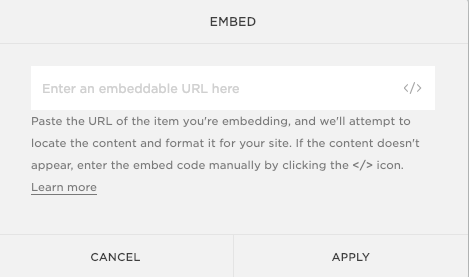
If I were happy with just having things on JustCast and RSS, I could skip this step. But, for the last several months I’ve been directing folk to epiphanynashville.org/sermons/ in our weekly newletter. To keep this URL active, I modified our previous sermons page away from being a podcast blog, to being a simple about page with an embedded RSS feed of our JustCast. This way, our sermons page on our website will always show the most recent three sermons without me having to do anything.
All-in-all this took about an hour to get setup. The time was well spent. Prior to this automation our website would routinely be several weeks behind on sermons. (Not a good look for a church plant.) With all the manual steps, it took a good ten minutes to get a recording edited and uploaded to our website. Now, with all the automations, it only takes me a about a minute. I download the file, upload it to Auphonic, and then I can step away from my computer knowing everything will evenutally get published and archived away.





